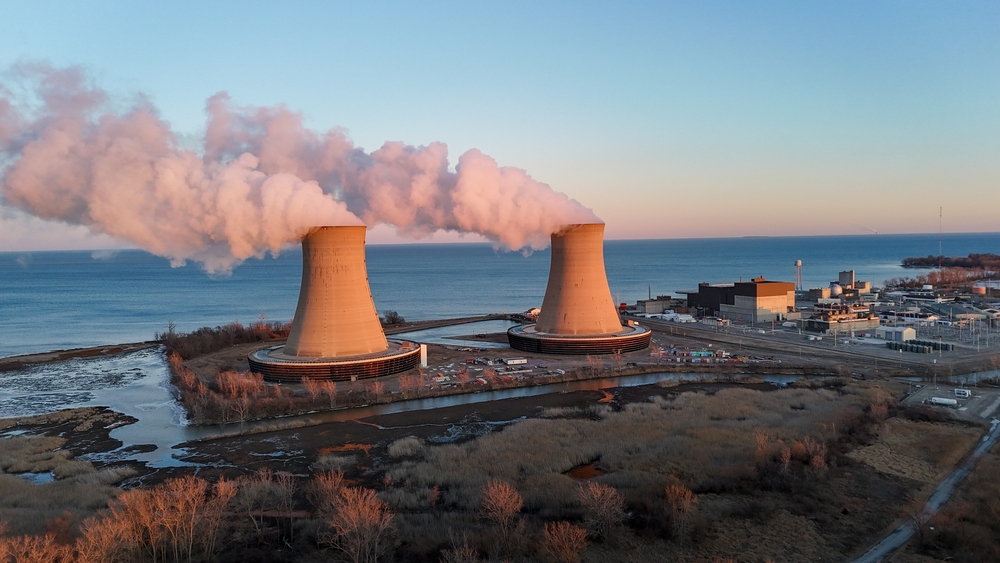United States of America
Despite polarized domestic politics and social tensions, the United States remains a major player in international relations, on the economic, military and diplomatic levels.
Related Subjects

Will the Western Nuclear Power Revival Take Place? The State of Extra-European Advances

Against the dual backdrop of the energy transition and the rapid transformation of the international order, the question of Western nuclear revival is being raised with renewed acuity.

Hillary Clinton et le leadership américain
Hillary Clinton, the frontrunner in the U.S. presidential election, has plans for American foreign policy. Clinton wants ISIS and Bashar Al-Assad out of Syria and to focus on human rights in trade negotiations with China. Now, Clinton and her campaign hope that voters will believe in her vision and her ability to make it happen.

The Taboo of the Armenian Genocide, Part Two: The Politics of American Avoidance
The Armenian Genocide has been a topic of trials and tribulations in American politics for quite some time. It has been an issue in Presidential campaigns, like that of now-President Obama: when he promised to recognize it. It has been the topic of votes, such as the most recent 2010 vote which failed to recognize the genocide. It has been a funnel for interests, lobbying, and foreign investment. With Germany recently recognizing the genocide and an American Presidential election at hand, speculation of American recognition is once again at a high. As politicians debate the issue, or avoid it altogether, the American political system moves forward. There are various key players in American politics, but in specificity to the Armenian Genocide issue, there are the Armenian, Turkish, and Israeli lobbies, and the constituencies they represent.
États-Unis : les nominations à la Cour suprême, enjeu des élections de 2016
With the death of Justice Antonin Scalia on February 13, 2016, the Supreme Court of the United States lost a beacon of conservative thought and one of the most influential American jurists of the last thirty years. The question of his replacement immediately became an issue as the United States looks forward to the presidential election in November. While past nominations to the Supreme Court have been relatively uncontentious, nominations today are affected by the polarization of American politics.

Lessons from Orlando
Of the litany of mass shootings in the United States, the attack in Orlando has demanded attention because of its sheer scale.
Hillary Clinton's Email "Scandal": How Will It Affect the Election?
With the Democratic Presidential Nomination in sight, Hillary Clinton must still contend with a continuous conversation about her email practices. How will this scandal, or non-scandal, affect the presidential race yet to come? A look at the perspectives of the American constituency and pending investigations may predict Clinton's likely future... and the future of the American presidency.

The Middle East that Awaits a New US Administration
Along with a history marked by intervention from external powers, the Middle East is now confronting conflicts which combine political, ethnic and religious dimensions. The United States can not withdraw its “leadership” in the area. Aside from the Syrian question, the next American administration will have to redefine the network of partnerships and alliances in the region and grapple with a multitude of problems, none of which have simple solutions.

A facist America?
Are the United States at risk of giving into a totalitarian drift embodied by Donald Trump?
États-Unis : La Cour suprême en balance
The first few months of this year have been eventful and dramatic for legal and judicial matters on either sides of the Atlantic: while France renewed a third of its magistrates - which has gone largely unnoticed - US Supreme Court Justice Antonin Scalia's sudden death caused a political earthquake.

The United States: the decline of the right to vote
More and more states are requiring voters to present an approved form of identification, a formality that primarily affects ethnic minorities.
Support independent French research
Ifri, a foundation recognized as being of public utility, relies largely on private donors – companies and individuals – to guarantee its sustainability and intellectual independence. Through their funding, donors help maintain the Institute's position among the world's leading think tanks. By benefiting from an internationally recognized network and expertise, donors refine their understanding of geopolitical risk and its consequences on global politics and the economy. In 2024, Ifri will support more than 70 French and foreign companies and organizations.






